Earth
Sign up for our newsletter
We summarize the week's scientific breakthroughs every Thursday.
-
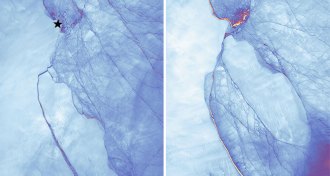 Earth
EarthThe giant iceberg that broke from Antarctica’s Larsen C ice shelf is stuck
A year ago, an iceberg calved off of the Larsen C ice shelf. The hunk of ice hasn’t moved much since, and that has scientists keeping an eye on it.
-
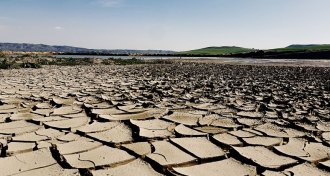 Earth
EarthYou’re living in a new geologic age. It’s called the Meghalayan
The newly defined Meghalayan Age began at the same time as a global, climate-driven event that led to human upheavals.
By Beth Geiger -
 Oceans
OceansShallow reef species may not find refuge in deeper water habitats
Coral reefs in deep-water ecosystems may not make good homes for species from damaged shallow reefs.
-
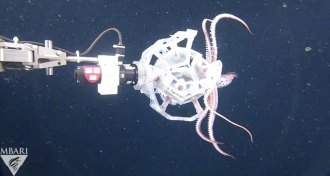 Animals
AnimalsNew ‘Poké Ball’ robot catches deep-sea critters without harming them
A machine that gently catches and releases animals underwater could help researchers take a more detailed census of the deep sea.
-
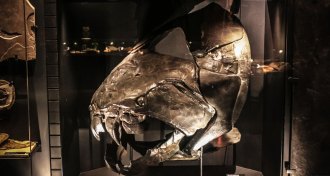 Paleontology
PaleontologyAn ancient swimming revolution in the oceans may have never happened
Swimmers may not have suddenly dominated the oceans during the Devonian Period after all: New analyses suggest they took over much more gradually.
-
 Health & Medicine
Health & Medicine‘The Poisoned City’ chronicles Flint’s water crisis
A new book examines how lead ended up in Flint’s water and resulted in a prolonged public health disaster.
-
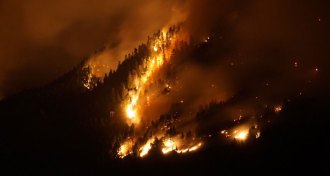 Environment
EnvironmentWildfires are making extreme air pollution even worse in the northwest U.S.
America’s air is getting cleaner — except in places that are prone to wildfires.
-
 Ecosystems
EcosystemsBird poop helps keep coral reefs healthy, but rats are messing that up
Eradicating invasive rats from islands may help boost numbers of seabirds, whose droppings provide nutrients to nearby coral reefs.
-
 Particle Physics
Particle PhysicsReaders ask about proton pressure, wearable tech and more
Readers had questions about the pressure inside a proton, wearable tech safety and the effects of global warming on insects.
-
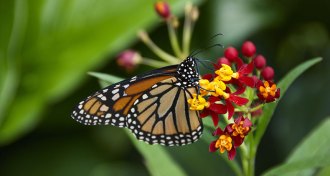 Climate
ClimateBloodflowers’ risk to monarchs could multiply as climate changes
High atmospheric carbon dioxide levels can weaken the medicinal value of a milkweed that caterpillars eat, and high temperatures may make the plant toxic.
By Susan Milius -
 Health & Medicine
Health & MedicineAir pollution is triggering diabetes in 3.2 million people each year
A new study quantifies the link between smoggy air and diabetes.
-
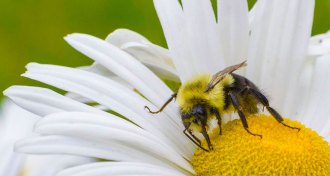 Animals
AnimalsWhy humans, and Big Macs, depend on bees
Thor Hanson, the author of Buzz, explains the vital role bees play in our world.